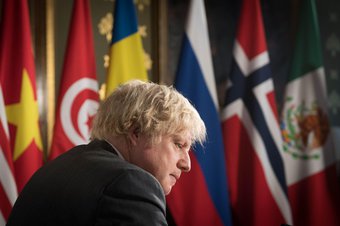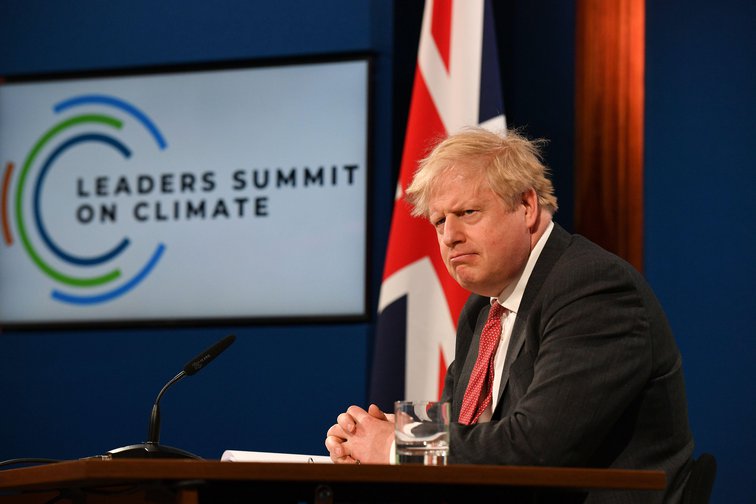The Yanomami people in the Brazilian Amazon have been fighting the plague of extractivism for decades. Then the coronavirus pandemic hit
Maurício Ye’kwana
30 April 2021

Yanomami paint themselves to face illegal miners |
Maurício Ye'kuana
It is 1975. A devastating epidemic has hit the state of Roraima, in northern Brazil. It is the plague of extractivism. The first garimpeiros, small scale miners in search of gold or precious stones in the Amazon, have arrived. About 500 of them begin to climb the Serra dos Surucucus uplands. In 1980, another 2,000 enter the territory of the Yanomami indigenous people via the Uraricuera River. The epidemic rages and the garimpeiros bring other ills, not least unheard diseases like measles and malaria, which wiped out many Yanomami.
They found lots and lots of gold on our land during those years. By the time we realized what was happening, 150 airplanes were flying daily into Yanomami territory from Boa Vista to transport miners back and forth. It is a measure of the number of gold miners headed for our home that Boa Vista airport became one of the busiest in Brazil.
In 1987, Romero Jucá, president of the National Indian Foundation (FUNAI), a government agency, arrived in Yanomami territory. Jucá signed an agreement with an Indigenous member of another group, not a Yanomani, that allowed miners in and the moment – in which he affirms that it is necessary to bring progress to the Indigenous peoples to “maintain the family” – was recorded on video. But the wishes expressed by Jucá and the Indigenous person from another ethnic group, who came from far away to tell us he was our representative, were not the same as ours. They were not the same and never will be.
A gold rush ensued between 1987 and 1990. Miners flooded in; the air traffic increased even more. The famous garimpeiro statue in the center of Boa Vista, capital of Roraima state, is a symbol of the importance of mining in the Amazonian economy. For us, a miner should never symbolize the state when we have real natural wealth here, such as Mount Roraima.
More than a fifth of the Yanomami people died from the diseases brought to their villages by the miners in the late 1980s. According to some estimates, for every 10,000 to 15,000 Yanomami, there were roughly 40,000 miners on our land.
Garimpos out, COVID out
Davi Kopenawa, our most forceful leader so far, has led the opposition to the mining. He left his village to talk to the authorities, denouncing the influx of miners and the perilous situation of the Yanomami, who were dying. The government's response was that it lacked the resources to help.
With help from a non-governmental organization, Kopenawa held protests at the United Nations (UN) and Brazilian embassies around the world. A letter from the Yanomami people, with more than 150,000 signatures, was delivered to the UN. It asked for our Indigenous territory to be demarcated as a protected area.
A UN campaign followed. Today, there are more than 400,000 signatures on the ‘Fora Garimpo, Fora Covid’ (Illegal miners out, COVID out) petition. We want non-Indigenous people to recognize the importance of our struggle for survival.
Monday 25 May 1992 marks an important chapter in the history of our struggle for our land. On that day, the Yanomami Indigenous Territory was demarcated by Brazil’s then president, Fernando Collor. Until then, our land had been reduced to 19 ‘islands’, while the rest was government-run parks and forests, where miners could free rein.
But the following year was marked by the Haximu massacre, which we consider the beginning of the genocide of the Yanomami people. The miners hired 17 Yanomami to do the heavy lifting for a few days. All but one were shot dead. The survivor was shot in the leg but managed to escape. It is thanks to him that we know the story today.
1993 was marked by the Haximu massacre, which we consider the beginning of the genocide of the Yanomami people
The Yanomami found the miners' camp abandoned and the bodies of their people. The international support we received at the time and the reaction to the massacre put pressure on the federal police to investigate mining in the Yanomami Indigenous territory. Fast forward to 2020. The first case of COVID-19 in the Yanomami territory occurred because of the miners. The miners have not stopped exploiting the deposits of gold, tin and diamonds, even during the pandemic, thanks to easy access by the river to the state’s Waikas region.
A young member of the Ye'kwana Indigenous community, which lives near the Yanomami, contracted coronavirus in the mining region and transmitted it to his people. That is how COVID-19 began to spread in our territory.
Sanöma Babies
We also face a new tragic problem: newborn babies are dying among the Sanöma, a subgroup of the Yanomami people in the Auaris region. When the women were taken to Boa Vista, the capital, with pneumonia, their babies reportedly became infected with coronavirus in hospital, died and their bodies literally disappeared.
What happened with the Sanöma babies shows the indignity to which Indigenous peoples are subjected. The lack of respect for the death of our people, on the part of the authorities, reflects how we are treated while alive.
The victims say it is a form of genocide. One of the newborns reportedly died from complications unrelated to COVID-19, but the medical report points to acute pneumonia, one of the main symptoms of the disease.
Another victim of the coronavirus epidemic was Davi Kopenawa himself. As a child, Kopenawa had already seen his people die from two infectious diseases brought by non-Indigenous people and illegal miners: influenza in 1959 and measles in 1967.
We are counting on international mobilization of support from both Indigenous and non-Indigenous people
Kopenawa was one of those who brought about the 1992 demarcation of the Yanomami Indigenous territory and in 1988 he received the United Nations Global 500 environmental award. In 2010, his book, ‘The Falling Sky’ (“A Queda do Céu”) which he wrote with the French anthropologist Bruce Albert, was published in France. The shamanic manifesto, which denounces the destruction of the forest and its people, has autobiographical elements. It was published in Brazil in 2015.
The fight against mining liberalization
Today, almost 60% of the Yanomami territory is affected by legal requirements from miners, in both Roraima and Amazonas states. In February 2020, Brazil’s president Jair Bolsonaro asked the Brazilian legislature to liberalize mining on Indigenous lands. The governor of Roraima state supports this. The Articulation of Indigenous Peoples of Brazil, which represents all Indigenous peoples in the country, has spoken out against it.
Some Indigenous leaders, mostly of different ethnic groups, declare themselves in favor of mining. They include some Yanomami, who claim to be leaders but barely speak Portuguese. One of them, who went to Brasilia to meet with President Bolsonaro’s administration, told me that he did not even know what he was going to say and that the other Indigenous people had forced him to express support for mining. He apologized to the Yanomami when he came back to our territory.
The Yanomami face threats now and in the future from local businessmen, politicians, and because the FUNAI has been weakened. Some of the Yanomami themselves are being co-opted.
We are counting on international mobilization of support from both Indigenous and non-Indigenous people. Three decades ago, we achieved an enormous win by securing the demarcation of our indigenous land. It gives me hope for the Fora Garimpo, Fora Covid campaign.
We want our struggle for life to be recognized by the world. We want non-Indigenous people to know and recognize Indigenous peoples for who we are. Our aim is to defend our home, our territory; our mother, the earth. And no one sells his own mother.










